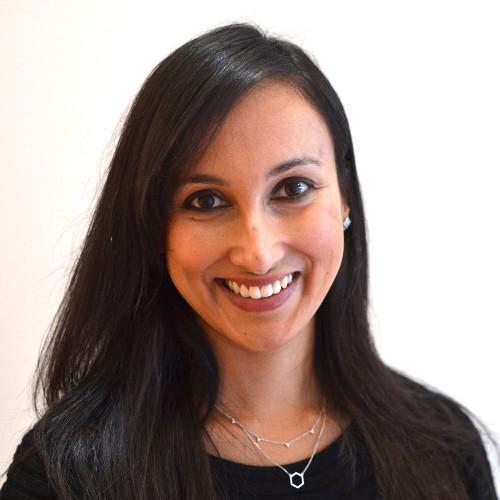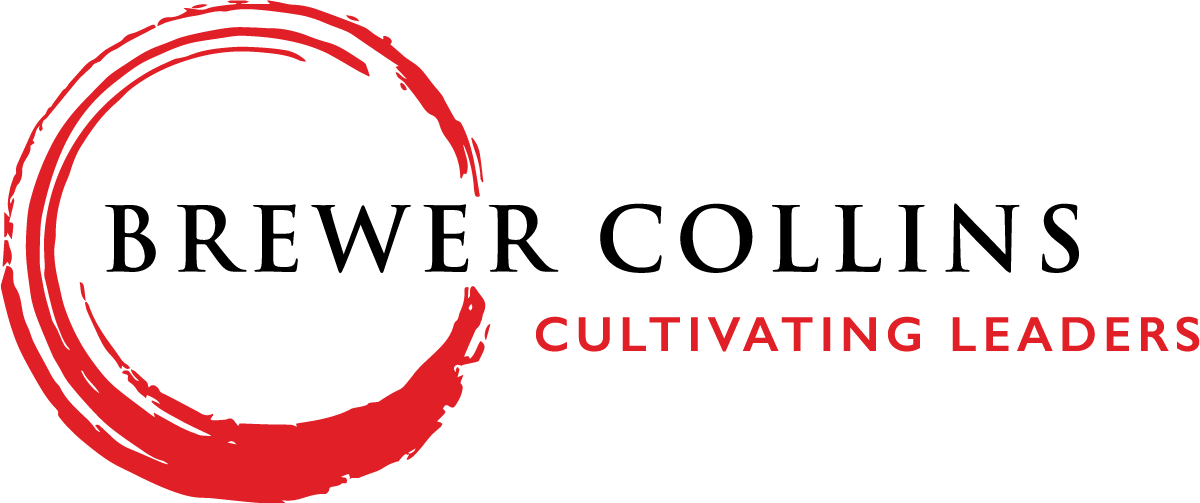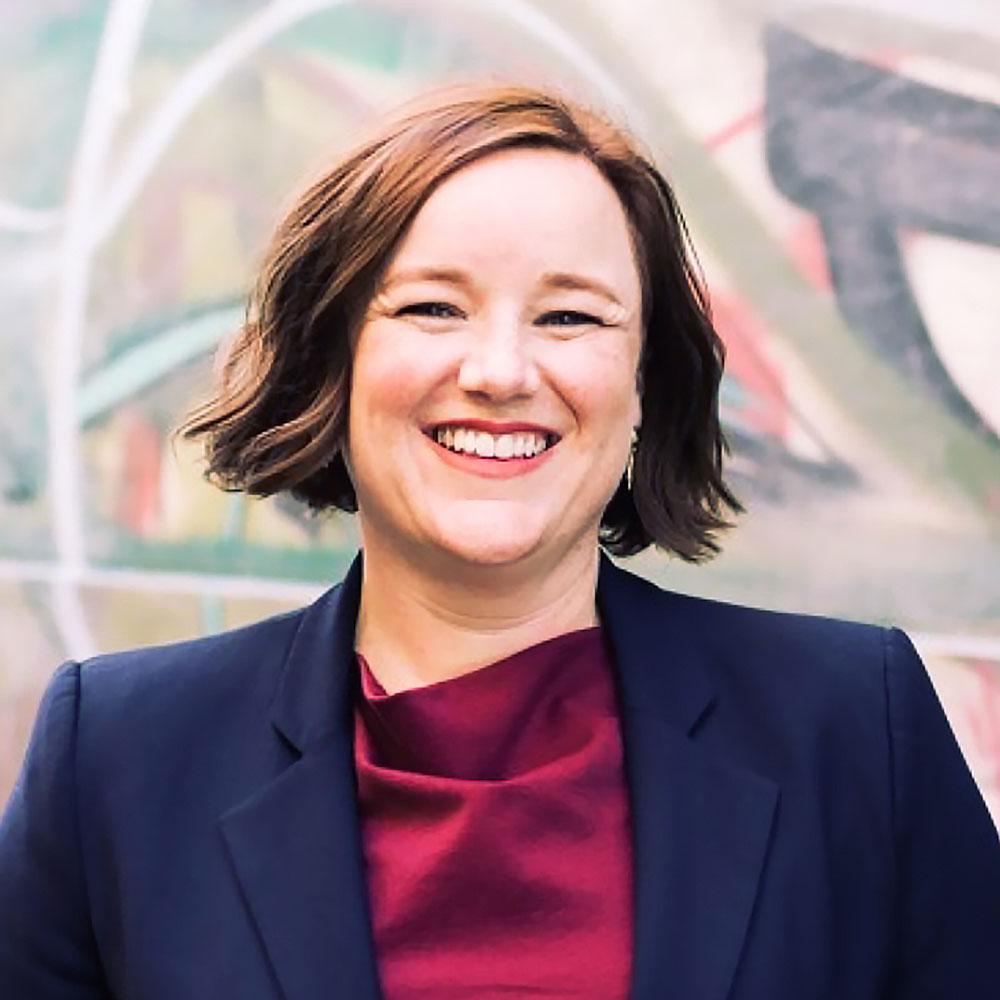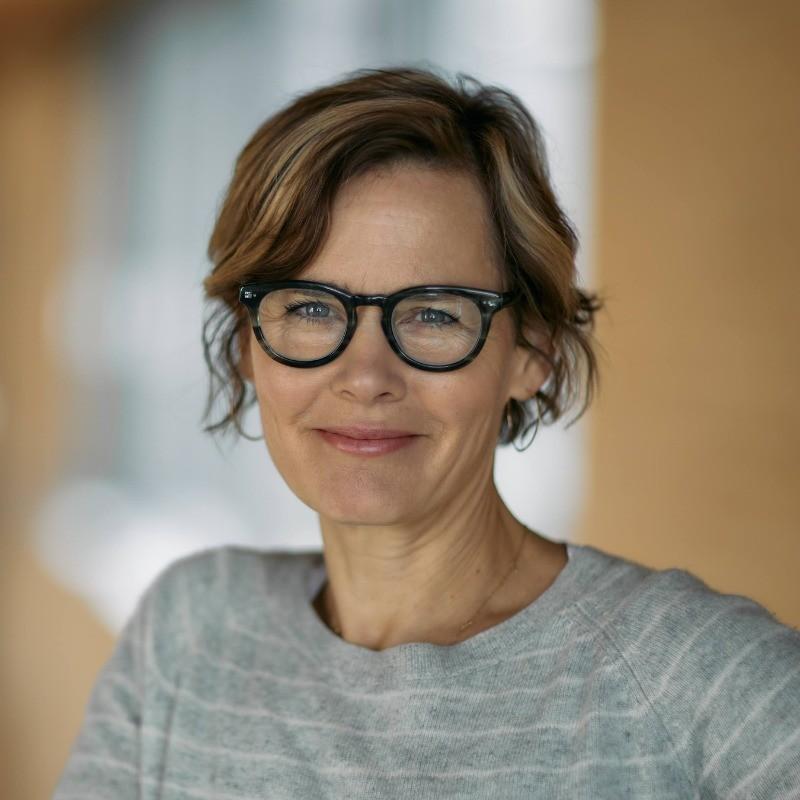ON LEADING PODCAST • Episode #7 • October 4, 2023
Listen on

Episode #7
Sunita Bose
On Technology Policy
By Lori Brewer Collins
“I want technology to be something that makes lives easier, that fundamentally democratizes systems. We have to find a way to keep the humanity in technology. It is shaping humans—and we need to be shaping it.”
In an ideal world, every engineer and every company working on new tech would be guided by a set of key ethical frameworks. In the real world, we are not there yet.
Governments around the world are grappling with how to regulate technology. There is no shortage of opinions and no clear pathway forward. The emergence of generative artificial intelligence (GenAI) and digitization has accelerated conversations between government and technology companies that have been happening for some time now. There are ethical frameworks and public-private partnerships to prevent the perpetuation of discrimination or bias, fairness and safety in the deployment of new tech. The fight against mis- and disinformation also relies on a multi-stakeholder approach across digital platforms, media, governments and the community.
But how do we even begin to drive consensus about the solutions for how technology should be regulated or governed across diverse stakeholders in industry, governments and civil society on these important, often contentious issues? This was one of the key questions I posed to Sunita Bose, a leading advocate for the tech sector and the democratizing power of the Internet, in the latest episode of my podcast Lori on Leadership.
Sunita worked alongside my son, Jake Brewer, when they were both at the online open petition platform Change.org in San Francisco. Earlier in her career, Sunita had worked in advocacy and strategic global communications for Oxfam and UNICEF. As Head of Global Policy for Change.org, she established and led the policy team that developed the rules for users (including the company’s Privacy Policy, Terms of Service, Community Guidelines, and the infrastructure to manage harmful user-generated content, in areas such as bullying, hate speech, defamation, misinformation, data privacy and child protection). She developed and oversaw the implementation of those policies at scale, and worked with staff across 18 international offices to find consensus and common ground across jurisdictions to ensure a level of consistency in policy application globally.
“When it comes to policies for solving some of these new challenges, we need to go beyond a tech-only kind of tunnel vision and take things in context. We need to get a more holistic picture.”
Sunita is now Managing Director of DIGI (Digital Industry Group Inc.), a not-for-profit industry association representing companies that invest in online safety, privacy, cyber security and a thriving digital economy in Australia. In her role, Sunita advises the federal government on technology policy: she was a member of the Morrison government’s Digital Experts Advisory Committee, and currently sits on the advisory board of Australia’s recently launched National Anti-Scam Centre. Her opinions have been published in The Australian, The Sydney Morning Herald and The Guardian.
DIGI’s mission is to be a key industry, government and community collaborator in addressing online harms, data and consumer protection, and growing the country’s digital economy. The roster of DIGI’s members reads like a “who’s who” in tech: Apple, eBay, Google, Linktree, Meta, Snap, Spotify, TikTok, Twitter, Yahoo!. DIGI has a consensus-based decision-making model; to drive its mission forward, DIGI’s 10 founding member companies, who are major competitors, must agree on strategic decisions and policy positions.
Key Takeaways
I was delighted to catch up with Sunita in Australia, and to take away these nuggets about transformative leadership and consensus building.
- When there is no rule book, you have to figure out the best way to enable everyone to have a voice. Reflecting on her work building consensus across vastly different cultural views in different jurisdictions to develop Change.org’s content policies in contentious areas such as hate speech, Sunita mentioned that you need to start by creating an environment where everyone feels safe to speak and can feel heard. That includes seeking out, early on, the people with the strongest opinions on the issue. If you don’t, they will become detractors.
- Listen genuinely to build a foundation of trust. Develop strong bilateral relationships, and demonstrate the kind of approachability and discretion that makes people feel comfortable picking up the phone to say things they might not feel comfortable saying in a group.
- Create faith in the policy development process. Don’t give people a blank page. Bring proposals to the group that are 80% there, but not yet complete, and do the hard work and heavy lifting to get to that point. Clearly define a process the group will use to finalize the work, such as rounds of consultations, and be genuinely open to the direction it takes. Let people feel they’ve put their thumbprint on what was shaped. Understand you may not get everyone to agree on the outcome, but you can strive for creating a process that everyone trusts.
- Leadership is not about the quality of your output, but how you connect with others. Accept that your leadership approach will connect better with some people and not others. The strongest working relationships you’ll have in your career are predicated on friendship, but know that you can’t have friendships with everyone. However, you can have respect.
- Be comfortable with not trying to show that you know everything. If you did, no one would feel comfortable enough to provide you with their views. Vulnerability is a strength and it can liberate you from feeling like you have to show up all with the answers.
- Feedback surfaces values. Feedback reflects something the giver values, often in themselves. If you value the opinion of the person giving you feedback or if that relationship is important to you in some way, reflect on it deeply and work hard to take it on board. If you don’t value the same things, you may not want to adopt the feedback. (Sunita credits this thinking to author Tara Mohr).
- If you struggle with imposter syndrome, find sources of confidence. You can intentionally build it by speaking outside your organization, which helps you crystallize owning your own expertise. You can also maintain relationships with people who reflect back to you your potential and a vision of yourself as brilliant which you don’t always see.
- Recognize that you can learn from anyone. You might have a vision for the type of leader or person who you would be inspired to work with. Be aware that your vision of a good leader might be impacted by your own biases. In your career, you’ll have the privilege of working with a wide range of people. Know that you can learn something from everyone.

MORE RELATED TO THE GUEST
Sunita Bose
- LinkedIn Profile
- Digital Industry Group Inc.
- Change.org
- “Transparency is more than a buzzword in the disinformation fight”, InnovationAus.com (June 1, 2023)
- “More ambition and less red tape can get Aussie tech in the global game”, Australian Financial Review (September 6, 2021)
- “We have an opportunity to get online safety laws right – why rush them?”, The Sydney Morning Herald (March 17, 2021)




